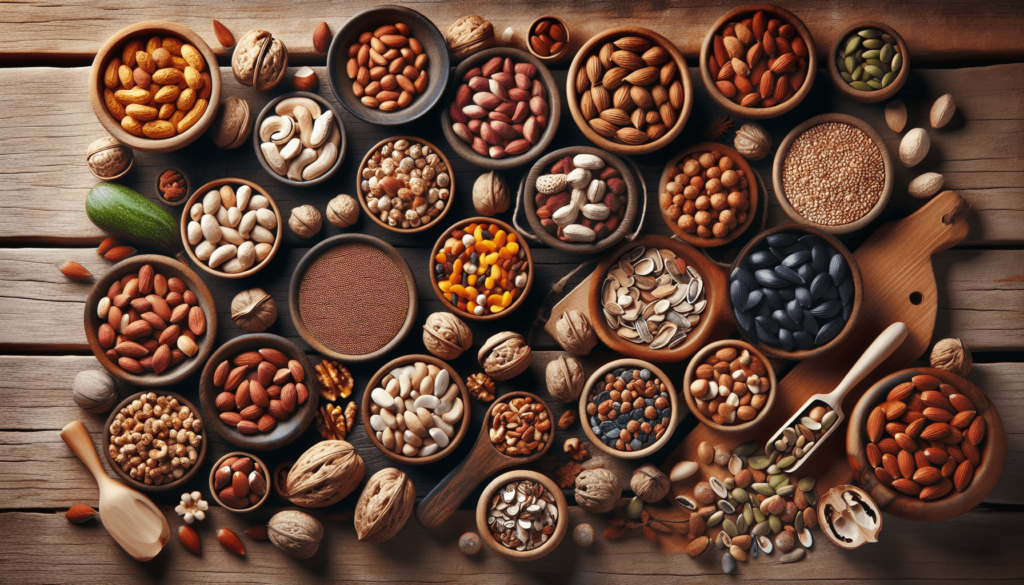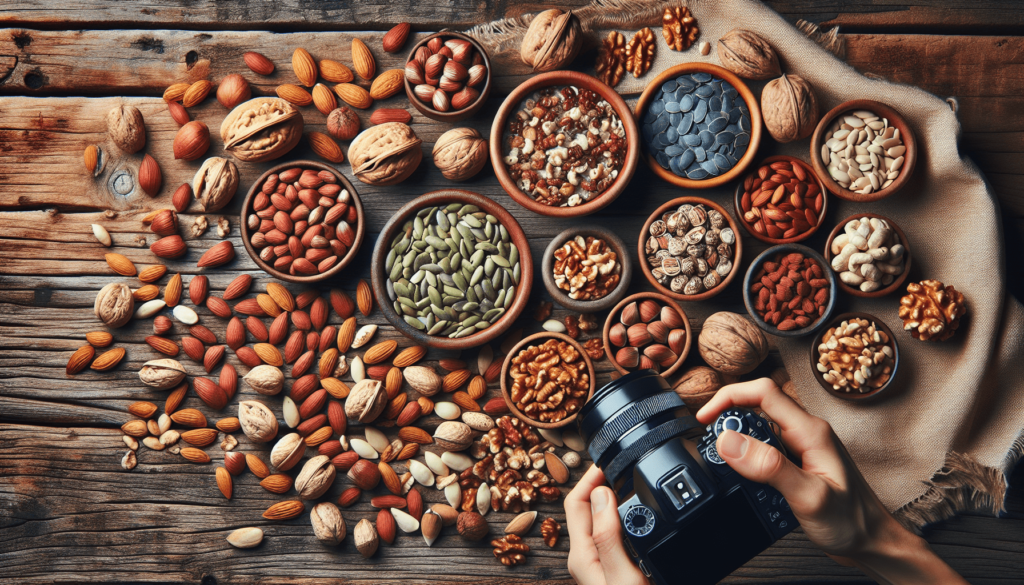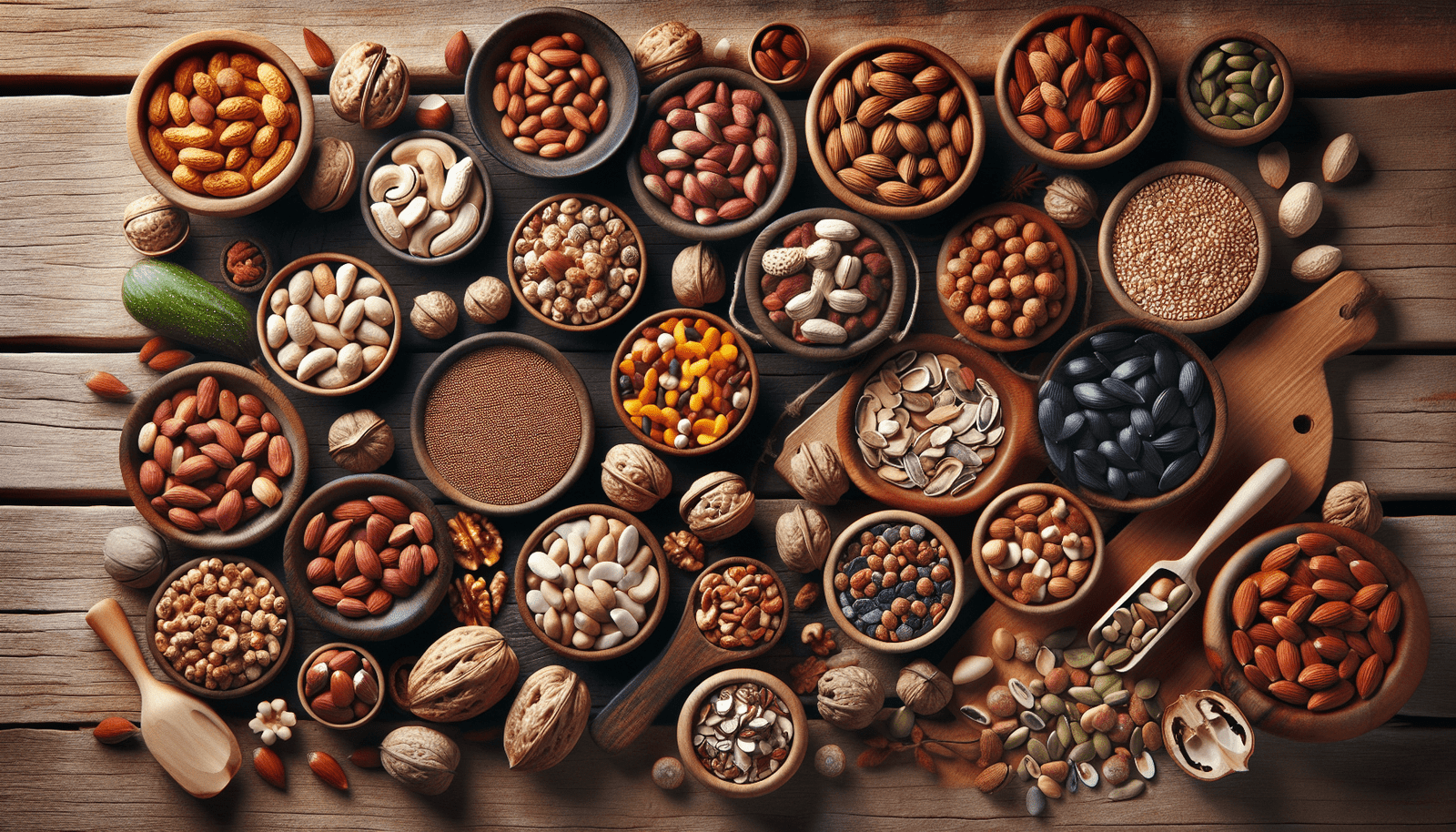Welcome to an exploration of how nuts and seeds can impact the time it takes for food to travel through your digestive system. By understanding the effects of these fiber-rich foods on your gut transit time, you can make informed decisions about incorporating them into your diet. Let’s delve into the potential benefits of nuts and seeds for your digestive health.
How Do Nuts And Seeds Affect Gut Transit Time?
Have you ever wondered how nuts and seeds impact your digestion? Let’s dive into how these nutrient-rich foods affect your gut transit time.
Understanding Gut Transit Time
Gut transit time is a crucial factor in digestive health. It refers to how long it takes for food to travel through your digestive system from when you eat it until it is eliminated as waste. A healthy gut transit time is essential for proper nutrient absorption and overall well-being.
Factors That Affect Gut Transit Time
Several factors can influence gut transit time, including diet, hydration, physical activity, and gut health. Foods rich in fiber, such as nuts and seeds, play a significant role in regulating gut transit time.
When you consume fiber-rich foods like nuts and seeds, it adds bulk to your stool, which can help promote regular bowel movements and prevent constipation. Inadequate fiber intake can lead to sluggish gut transit time and digestive issues.

This image is property of pixabay.com.
Nuts And Seeds: Fiber-Rich Foods
Nuts and seeds are packed with essential nutrients, including fiber, healthy fats, vitamins, and minerals. Incorporating nuts and seeds into your diet can have a positive impact on your gut health and digestion.
Types of Fiber in Nuts and Seeds
There are two main types of dietary fiber found in nuts and seeds: soluble fiber and insoluble fiber. Soluble fiber dissolves in water, forming a gel-like substance that slows down digestion and helps regulate blood sugar levels. Insoluble fiber adds bulk to the stool, speeding up gut transit time and promoting regular bowel movements.
Nuts like almonds, walnuts, and pistachios are excellent sources of fiber, while seeds such as chia, flax, and pumpkin seeds are also rich in fiber content. Including a variety of nuts and seeds in your diet can provide you with a good balance of soluble and insoluble fiber for optimal gut health.

This image is property of pixabay.com.
Impact of Nuts and Seeds on Gut Transit Time
Consuming nuts and seeds regularly can help improve gut transit time and overall digestive health. The fiber content in these foods acts as a natural laxative, promoting regular bowel movements and preventing constipation.
Soluble Fiber in Nuts and Seeds
Soluble fiber found in nuts and seeds forms a gel-like substance in the gut, which slows down the digestion process. This can help regulate bowel movements and prevent diarrhea by adding bulk to the stool. Additionally, soluble fiber promotes the growth of beneficial gut bacteria, which further aids in digestion and nutrient absorption.
Insoluble Fiber in Nuts and Seeds
Insoluble fiber adds bulk to the stool, speeding up gut transit time and promoting regular bowel movements. This type of fiber acts as a natural laxative, preventing constipation and ensuring that waste moves smoothly through the digestive tract. Including nuts and seeds in your diet can help maintain a healthy gut transit time and prevent digestive issues.

This image is property of pixabay.com.
Tips for Including Nuts and Seeds in Your Diet
Incorporating nuts and seeds into your daily diet is a simple way to improve gut health and promote healthy digestion. Here are some tips to help you include more nuts and seeds in your meals:
- Snack on nuts: Keep a variety of nuts like almonds, walnuts, and cashews on hand for a quick and nutritious snack.
- Add seeds to smoothies: Sprinkle chia, flax, or pumpkin seeds into your morning smoothie for an extra fiber boost.
- Include nuts in salads: Add chopped nuts like pecans or pistachios to your salads for a crunchy texture and added nutrients.
- Use seeds as toppings: Sprinkle sesame seeds, sunflower seeds, or hemp seeds on top of yogurt, oatmeal, or salads for added crunch and flavor.
- Make nut butter: Blend nuts like almonds or peanuts into homemade nut butter for a delicious spread to enjoy on toast or fruit slices.
By incorporating nuts and seeds into your meals and snacks, you can enhance your gut health, regulate gut transit time, and improve overall digestion.

Conclusion
Nuts and seeds are nutrient-dense foods that can have a significant impact on gut transit time and digestive health. The fiber content in these foods helps regulate bowel movements, promote regularity, and prevent digestive issues like constipation. By including a variety of nuts and seeds in your diet, you can support a healthy gut and improve your overall well-being. So go ahead and enjoy a handful of nuts or sprinkle some seeds on your meals to nourish your gut and promote optimal digestion.


